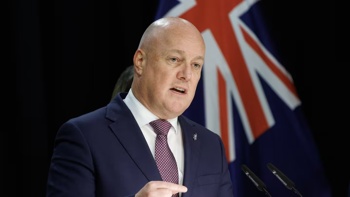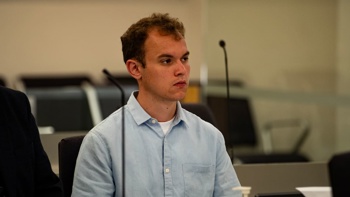- A first-of-its-kind economic analysis finds $270b could be saved over 50 years by halting species loss today.
- Meeting set biodiversity targets would mean boosting NZ’s current annual spend on nature from $4b to $22.5b.
- Group warns NZ risks falling ‘out of step’ with rest of world on commitments ahead of UN summit.
New Zealand could save more than $270 billion over the next 50 years by reversing its escalating biodiversity crisis – but would need to boost current investment by nearly sevenfold to meet set targets.
That’s according to a first-of-its-kind analysis commissioned by WWF-New Zealand, which argues the Government is “back-sliding” in efforts to protect nature.
The just-released report, by consultancy firm EY New Zealand, pointed out how more than 4000 native species, from plants and fungi to birds and fish, are now deemed threatened or at risk of extinction.
That dire picture was only worsening with the mounting impacts of climate change.
But rather than focus on what Aotearoa was losing, the new analysis looked at what long-term economic gains it could reap by turning the tide now.
It found that efforts like creating new marine reserves, restoring wetlands and returning more land to native forests could help bring a net benefit of $272b from 2025 to 2080.
That would come through avoiding impacts like disruption to crops and poorer water quality and fish stocks, while safe-guarding New Zealand’s clean and green image for tourism and the primary sector.
In one example cited in the report, taking nature-based solutions to climate change, like native forest restoration, could capture and store an extra 13.7 million tonnes of carbon each year from 2030, saving some $56b by 2080 and reducing the need to buy offshore credits.
It also found the economic benefits could outweigh the costs of inaction as early as 2035 – but that billions more dollars would need to be spent today.
New Zealand, home to the world’s highest proportion of threatened species, is among nearly 200 nations to have signed up to global UN targets to halt nature loss by 2030.
To meet the five targets considered most relevant for Aotearoa, the analysis estimated that the $4b currently spent by government and councils each year would need to be increased to $22.5b.
WWF-New Zealand chief executive Kayla Kingdon-Bebb said the report showed that protecting nature made economic as well as environmental sense.
WWF-New Zealand chief executive Kayla Kingdon-Bebb says protecting nature makes sense.
“Politicians often claim their priority is growing the economy and they see protecting nature as a drain on the books – but this landmark research turns the idea of ‘people versus nature’ on its head.”
She acknowledged that turning around trends meant economy-wide transformation.
Steps suggested in the report included mandating businesses to assess and disclose their impacts on nature – large finance firms are already required to do so for climate risks – along with a system of biodiversity credits and an investment fund for nature-related projects.
Kingdon-Bebb noted countries were being called upon to lay out their updated plans at next week’s UN biodiversity summit in Colombia – and worried New Zealand risked falling “out of step” with the rest of the world.
“So far, we’ve seen a lot of backsliding from the coalition Government, and a series of anti-environment policies that will push our native species closer to the brink.”
WWF-New Zealand is one of several major green groups accusing the Government of waging a “war on nature” through a recent series of reforms, rollbacks and cuts across the environment space.
They’ve included the contentious Fast-Track legislation, an overhaul of freshwater and biodiversity regulations, agency funding cuts, a review of rules around significant natural areas and the scrapping of several Labour-era climate policies.
“The Government’s continued focus on short-term economic growth at the expense of our environment is ultimately going to undermine our economy and saddle future generations with an enormous, unconscionable debt.”
The office of Conservation Minister Tama Potaka declined to comment, referring the Herald to the Department of Conservation (DoC).
DoC’s deputy director-general biodiversity heritage and visitors, Stephanie Rowe, didn’t address the report’s specific findings but said the department was developing a new tool to get a better picture of what work was needed, and the costs involved.
“It will give us evidence of where we can make the biggest difference for nature.”
DoC was also looking at how to generate new revenue for conservation and was improving how it shared information with groups like iwi, researchers and businesses.
Rowe said the next implementation plan under the country’s over-arching biodiversity strategy, Te Mana o te Taiao, would set out the critical actions needed to meet New Zealand’s goals.
Jamie Morton is a specialist in science and environmental reporting. He joined the Herald in 2011 and writes about everything from conservation and climate change to natural hazards and new technology.
Take your Radio, Podcasts and Music with you









